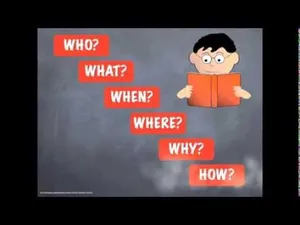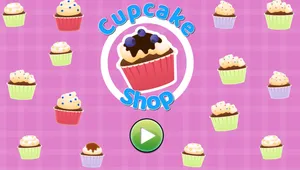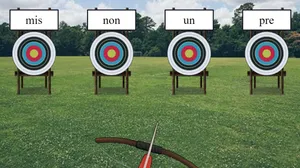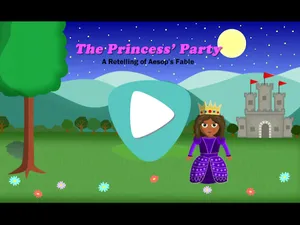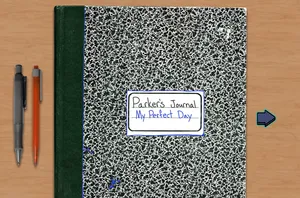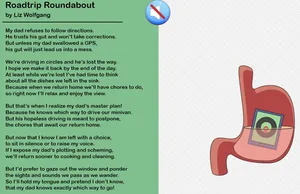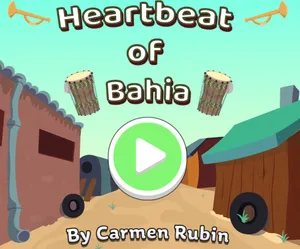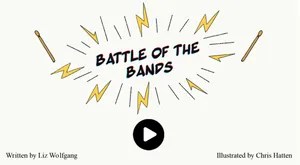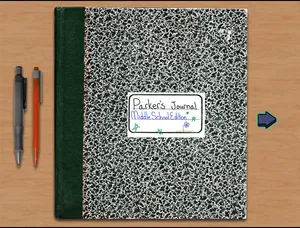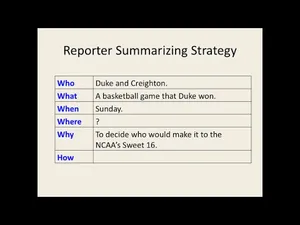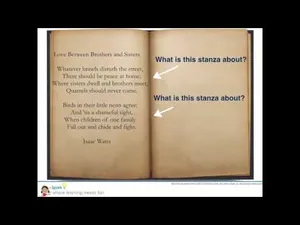The Princess' Party
Determine Message, Lesson, Moral
Parker's Perfect Day
Explicit Meaning and Inferences
Road Trip Roundabout
Explicit Meaning and Inferences
Heartbeat of Bahia
Identify Theme through Characters
Battle of the Bands
Relating Pieces to the Whole
Parker's Journal
Textual Evidence and Inferences
Reading Literature - Summarizing Strategy
Main Idea and Details
Compare & Contrast Themes
Comparing Similar Texts
Multimedia & the Meaning or Tone of a Text
Enhance Meaning with Multimedia
How Stanzas Provide Structure to a Poem
Relating Pieces to the Whole
Reading Activities and Teaching Resources for 5th Grade
Research papers may be anathema to most students, but by now we've developed the skills to sufficiently analyze and synthesize text. Look out book reports, here we come!
Fifth grade reading work is largely a continuation of everything students worked toward in the previous year, just on a larger scale and with more challenging texts. Many students will have identified a number of enticing characters and series when picking out books, and they are doing a better job of comprehending literary devices like metaphors and similes.
For a more comprehensive look at eSpark's standards-aligned fifth grade reading teaching resources, check out the breakdown of covered domains and the skills students will be working on here:
Some of the skills students will master in eSpark include:
Reading Literature
- Quote accurately from a text when explaining what the text says explicitly and when drawing inferences from the text.
- Determine a theme of a story, drama, or poem from details in the text, including how characters in a story or drama respond to challenges or how the speaker in a poem reflects upon a topic; summarize the text.
- Compare and contrast two or more characters, settings, or events in a story or drama, drawing on specific details in the text (e.g., how characters interact).
- Determine the meaning of words and phrases as they are used in a text, including figurative language such as metaphors and similes.
- Explain how a series of chapters, scenes, or stanzas fits together to provide the overall structure of a particular story, drama, or poem.
- Describe how a narrator’s or speaker’s point of view influences how events are described.
- Analyze how visual and multimedia elements contribute to the meaning, tone, or beauty of a text (e.g., graphic novel, multimedia presentation of fiction, folktale, myth, poem).
- Compare and contrast stories in the same genre (e.g., mysteries and adventure stories) on their approaches to similar themes and topics.
- Proficiently and independently read and comprehend literature, including stories, dramas, and poetry, at the high end of the grades 4–5 text complexity band.
Reading Informational
- Quote accurately from a text when explaining what the text says explicitly and when drawing inferences from the text.
- Determine two or more main ideas of a text and explain how they are supported by key details; summarize the text.
- Explain the relationships or interactions between two or more individuals, events, ideas, or concepts in a historical, scientific, or technical text based on specific information in the text.
- Compare and contrast the overall structure (e.g., chronology, comparison, cause/effect, problem/solution) of events, ideas, concepts, or information in two or more texts.
- Draw on information from multiple print or digital sources, demonstrating the ability to locate an answer to a question quickly or to solve a problem efficiently.
- Integrate information from several texts on the same topic in order to write or speak about the subject knowledgeably.
eSpark is truly unique in the world of online learning. Our holistic, student-centered approach blends the proven benefits of play-based learning with systematic, explicit, and direct instruction. It’s proof that learning can be fun, personalized, and effective, all at once!
eSpark meets the criteria for evidence-based interventions under ESSA guidelines, and has been proven in multiple studies to improve student performance in math and reading.
When you sign up for an eSpark account, your students experience these activities via adaptive, differentiated independent pathways and teacher-driven small group assignments. Teachers also have access to detailed usage and progress reports with valuable insights into standards mastery, student growth trends, and intervention opportunities.
With the addition of the game-changing Choice Texts for the 2023-2024 school year, eSpark has cemented its status as the most loved supplemental instruction option for students and teachers alike. Claim your free account today and see the difference for yourself!
